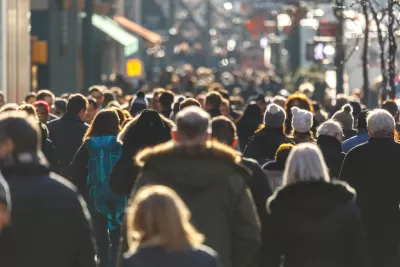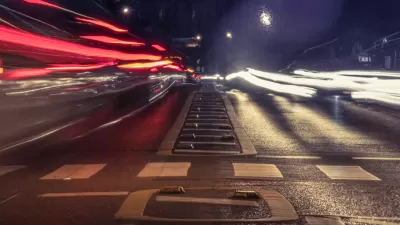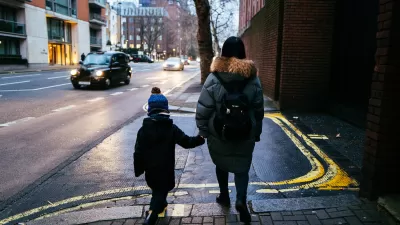A new report by Victoria Walks, an advocacy organization in Australia, quantifies the benefits of choosing to walk. The report also benefits the multiplier of the choice to invest in pedestrian infrastructure.

"If you walk for 20 minutes to and from work, the state economy benefits $8.48," according to an article by Timna Jacks.
That's the finding of a new report commissioned by Victoria Walks and completed by Arup—so the figures are specific to the state of Victoria in Australia. According to "The Economic Case for Investment in Walking" [pdf], the cost savings "comes from reducing costs to the health system, removing the cost to run a car or public transport and improvement to local traffic and the environment."
The report also quantifies the benefits of investing in pedestrian infrastructure. "For every $1 spent on walking, Victoria would stand to gain $13, according to the report using modelling by engineering firm Arup." Despite those figures, the state has budgeted only $7 billion for pedestrian programs and projects by 2020. That's down from $9 billion in 2017.
FULL STORY: 'Learning bad habits': The $8 benefit of your morning walk

Maui's Vacation Rental Debate Turns Ugly
Verbal attacks, misinformation campaigns and fistfights plague a high-stakes debate to convert thousands of vacation rentals into long-term housing.

Planetizen Federal Action Tracker
A weekly monitor of how Trump’s orders and actions are impacting planners and planning in America.

In Urban Planning, AI Prompting Could be the New Design Thinking
Creativity has long been key to great urban design. What if we see AI as our new creative partner?

King County Supportive Housing Program Offers Hope for Unhoused Residents
The county is taking a ‘Housing First’ approach that prioritizes getting people into housing, then offering wraparound supportive services.

Researchers Use AI to Get Clearer Picture of US Housing
Analysts are using artificial intelligence to supercharge their research by allowing them to comb through data faster. Though these AI tools can be error prone, they save time and housing researchers are optimistic about the future.

Making Shared Micromobility More Inclusive
Cities and shared mobility system operators can do more to include people with disabilities in planning and operations, per a new report.
Urban Design for Planners 1: Software Tools
This six-course series explores essential urban design concepts using open source software and equips planners with the tools they need to participate fully in the urban design process.
Planning for Universal Design
Learn the tools for implementing Universal Design in planning regulations.
planning NEXT
Appalachian Highlands Housing Partners
Mpact (founded as Rail~Volution)
City of Camden Redevelopment Agency
City of Astoria
City of Portland
City of Laramie





























